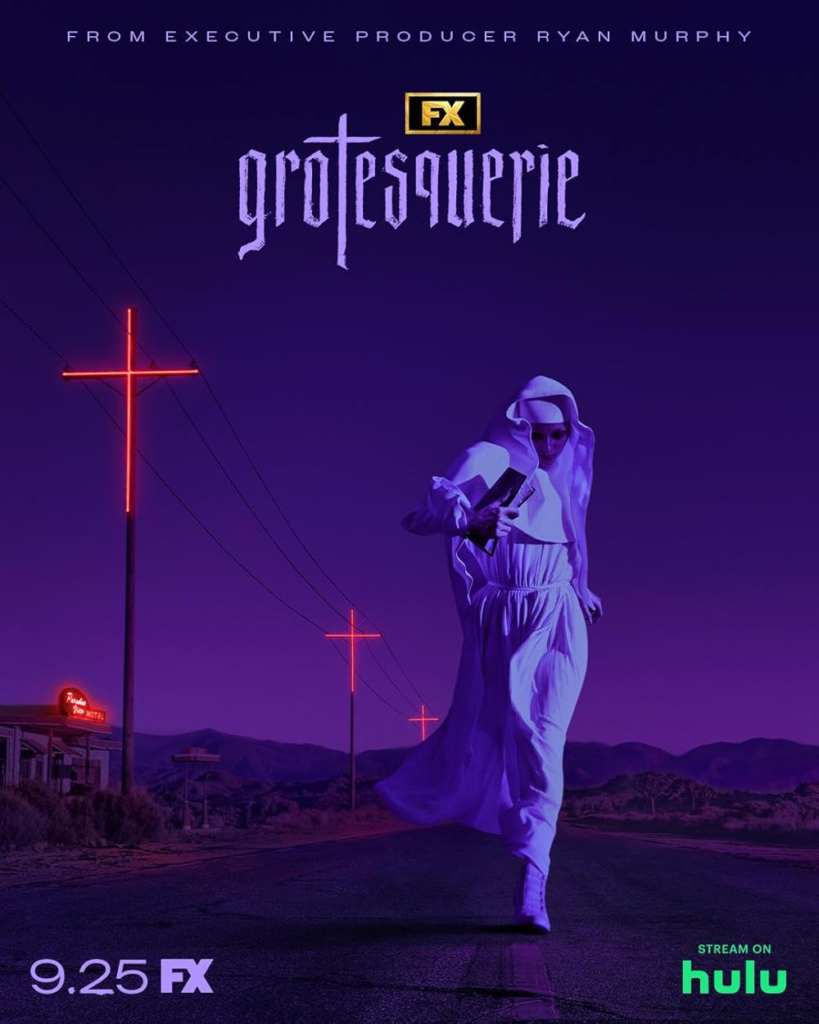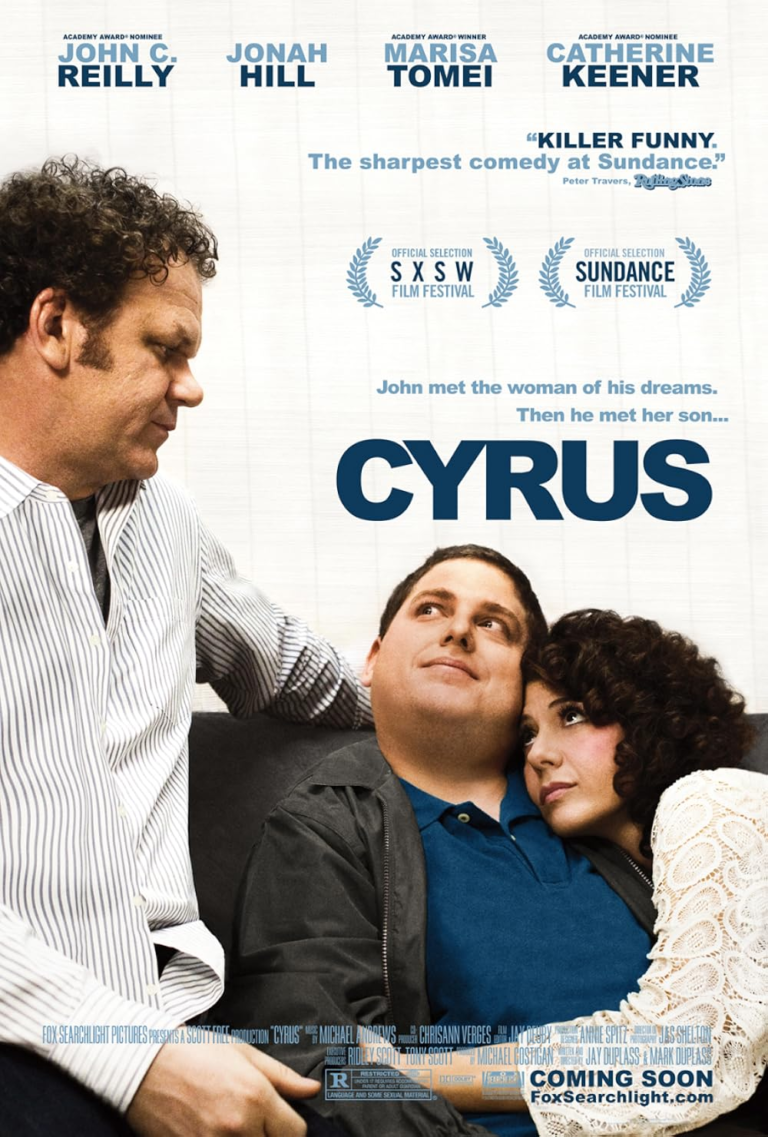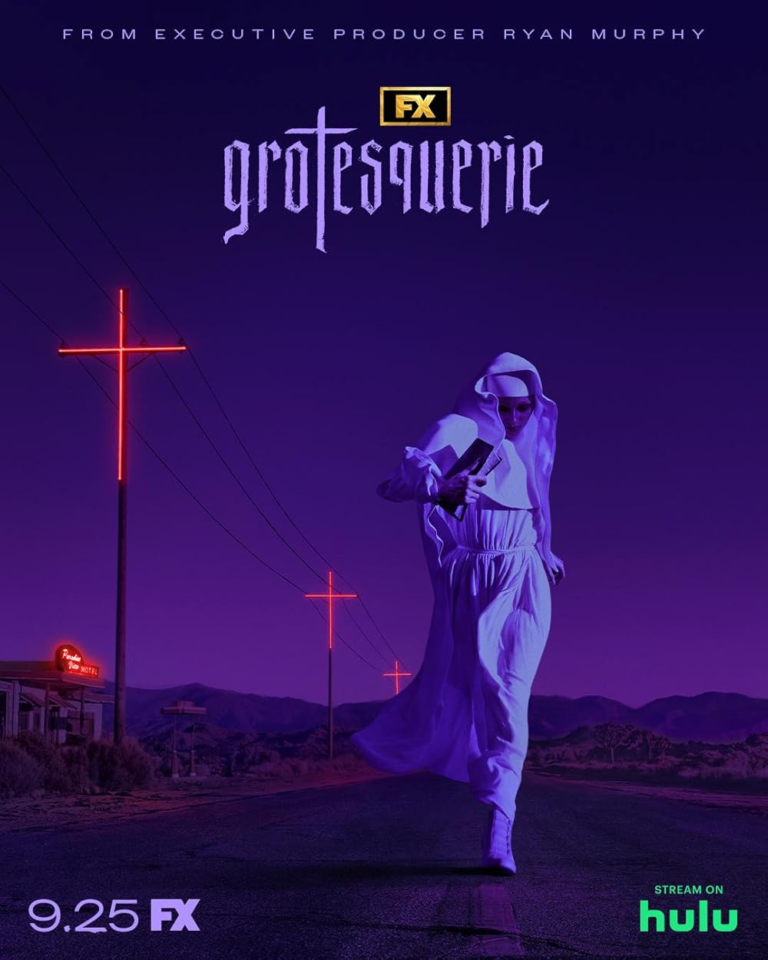Grotesquerie Christian Review

Grotesque. The very word evokes something that’s both repellent and magnetic, unsettling yet hypnotic, pulling you in even as you want to look away. The show Grotesquerie lives up to its name — a collision of high-strung emotions, erratic themes, and dark indulgences that twist and turn unpredictably. It’s the kind of show that comes at you with a barrage of visual style, trying to unnerve you in the same breath that it’s vying for your attention. But as a Christian viewer, it’s hard not to ask: is there a point to all this? Or is it just spectacle for the sake of spectacle?
From its very opening, Grotesquerie tries to juggle so many issues at once: addiction, gun violence, the erosion of marriage, and even faith — yes, faith — but in the murkiest, most cynical way possible. Nothing escapes unscathed here, as if every facet of modern life is laid bare and stripped down to its ugliest form. And yet, there’s a certain artistry to the chaos, a rhythm to the madness. You can see the ambition, the desire to provoke something deeper, but it’s like watching a jigsaw puzzle being smashed rather than pieced together. There are all these interesting fragments, but they’re scattered to the wind.
Faith as a Plot Device — or Is It Something More?
The show’s handling of faith is a prime example of its erratic nature. On one hand, it teases a genuine engagement with religious themes — hubris, redemption, forgiveness — themes that should resonate deeply with Christian audiences. But blink and you’ll miss them. They’re there one moment, then tossed aside for the next shocking plot twist or gruesome murder scene. Take Father Charlie (Nicholas Chavez), the enigmatic priest introduced early on. He’s a fascinating character, and his sermon on hubris, preached with fire and conviction, hints at a show that wants to say something profound about faith’s role in a world gone awry.
Yet, as the story unfolds, it becomes clear that Father Charlie’s faith is more prop than protagonist. He’s not a character meant to lead anyone to deeper truths; he’s a suspect, a pawn, a cog in the show’s twisted game. It’s as if Grotesquerie is afraid of letting faith stand on its own terms. Instead, it co-opts religious imagery and dialogue only to muddy it, using it to heighten the drama rather than illuminate any real moral struggle. For a Christian viewer, this can be more than frustrating; it can feel disrespectful, as if faith itself is being distorted for the sake of cheap thrills.
But it’s not all bleak. There are glimmers of sincerity, moments where the show slows down just enough for you to glimpse something more honest. These are the scenes that linger — Lois (Nash-Betts) staring down her own demons, Father Charlie grappling with his place in the church. It’s in these quiet moments that Grotesquerie almost, almost, manages to say something real about the human condition. But then, just as quickly, it pulls back, replacing depth with decadence.
The Saving Grace: Performances That Elevate the Chaos
If the show’s writing wavers, its performances never do. The entire cast commits fully to the insanity of the material, adding layers of nuance where the script falls short. None more so than Niecy Nash-Betts. Her portrayal of Lois — a character who could have been just another broken, down-on-her-luck cliché — is a masterclass in restraint. She plays Lois with a quiet intensity, every look and gesture carrying the weight of her character’s struggles. It’s through her performance that we see hints of the show’s potential, the story it could have told if it weren’t so intent on dazzling us with shock value.
Then there’s Lesley Manville. As the twisted, domineering caretaker, she’s equal parts terrifying and magnetic. There’s a palpable sense of glee in the way she inhabits her role, a hunger that makes her presence electric even in the show’s most mundane moments. Manville’s performance is the show at its best: bold, unsettling, and impossible to look away from. If only the narrative had given her more to work with, more than just a cardboard cutout of evil.
But the real tragedy is that, for all their talent, the actors can’t escape the script’s limitations. They’re trapped in a world that seems more interested in their worst traits than in their humanity. Characters are exaggerated to the point of caricature, their flaws played up for maximum shock value. It’s a show that doesn’t seem to trust its audience to engage with subtlety, hammering home its themes with all the finesse of a sledgehammer.
Style Over Substance: A Story Lost in Its Own Ambitions
Visually, Grotesquerie is stunning. There’s no denying that. The cinematography is dark and lush, every frame dripping with atmosphere. It’s a world that feels both hyper-real and dreamlike, teetering on the edge of nightmare. But all this beauty is in service of… what, exactly? The show’s obsession with style becomes its own undoing. It’s so caught up in creating a mood that it forgets to tell a coherent story.
Procedural elements are introduced and then abandoned. Characters switch motivations seemingly at random. Even the murder mystery at the heart of the show feels secondary, a loose framework for the creators to hang their twisted ideas on. It’s as if Grotesquerie is daring you to keep up, throwing curveball after curveball in a desperate attempt to stay one step ahead of the audience. And while that might work for some, for Christian viewers looking for a story with a clear moral arc, it’s more exhausting than exhilarating.
Violence and Voyeurism: When Does Darkness Cross the Line?
One of the show’s most troubling aspects is its approach to violence. There’s a sense that it’s being used not to serve the story, but to provoke a reaction. Scenes of brutality are lingered on, depicted in graphic detail that feels gratuitous rather than necessary. For a Christian viewer, this raises a question: when does darkness become exploitation? The Bible doesn’t shy away from the realities of sin and suffering, but it never loses sight of the ultimate hope of redemption. Grotesquerie seems content to wallow in the mire, offering no light, no redemption, just endless cycles of pain and corruption.
This unrelenting bleakness, coupled with the show’s superficial treatment of faith, makes it difficult to recommend. There’s no moral compass here, no sense of consequence or justice. Characters commit heinous acts and then move on, their sins glossed over or celebrated rather than confronted. For a show that wants to grapple with weighty themes like guilt and redemption, it’s a glaring oversight.
Final Thoughts: An Exercise in Edginess, or Something More?
So, where does Grotesquerie stand? It’s a show that wants to be provocative, to push boundaries, to make you think — but too often, it feels like it’s trying to do all this without actually saying anything. There are moments when it comes close, when it teeters on the edge of real profundity, but it always pulls back, opting for spectacle over substance. It’s not a bad show, exactly. There’s talent here, real talent, both in front of and behind the camera. But talent alone isn’t enough.
For Christian viewers, Grotesquerie is a mixed bag. There’s potential here, potential for a story that could have engaged deeply with themes of faith, forgiveness, and human frailty. But that potential is squandered, buried beneath layers of style and cynicism. Ultimately, it’s a show that leaves you feeling hollow, like you’ve watched something elaborate and well-crafted but ultimately empty.
Rating: 5/10. If you’re a fan of dark, visually stunning thrillers and don’t mind a lack of moral clarity, it might be worth a look. But for those seeking something more meaningful, something that grapples honestly with the darker sides of faith and human nature, Grotesquerie falls short. It’s a show that’s all surface, no substance — a grotesque spectacle that never quite manages to justify its own existence.




